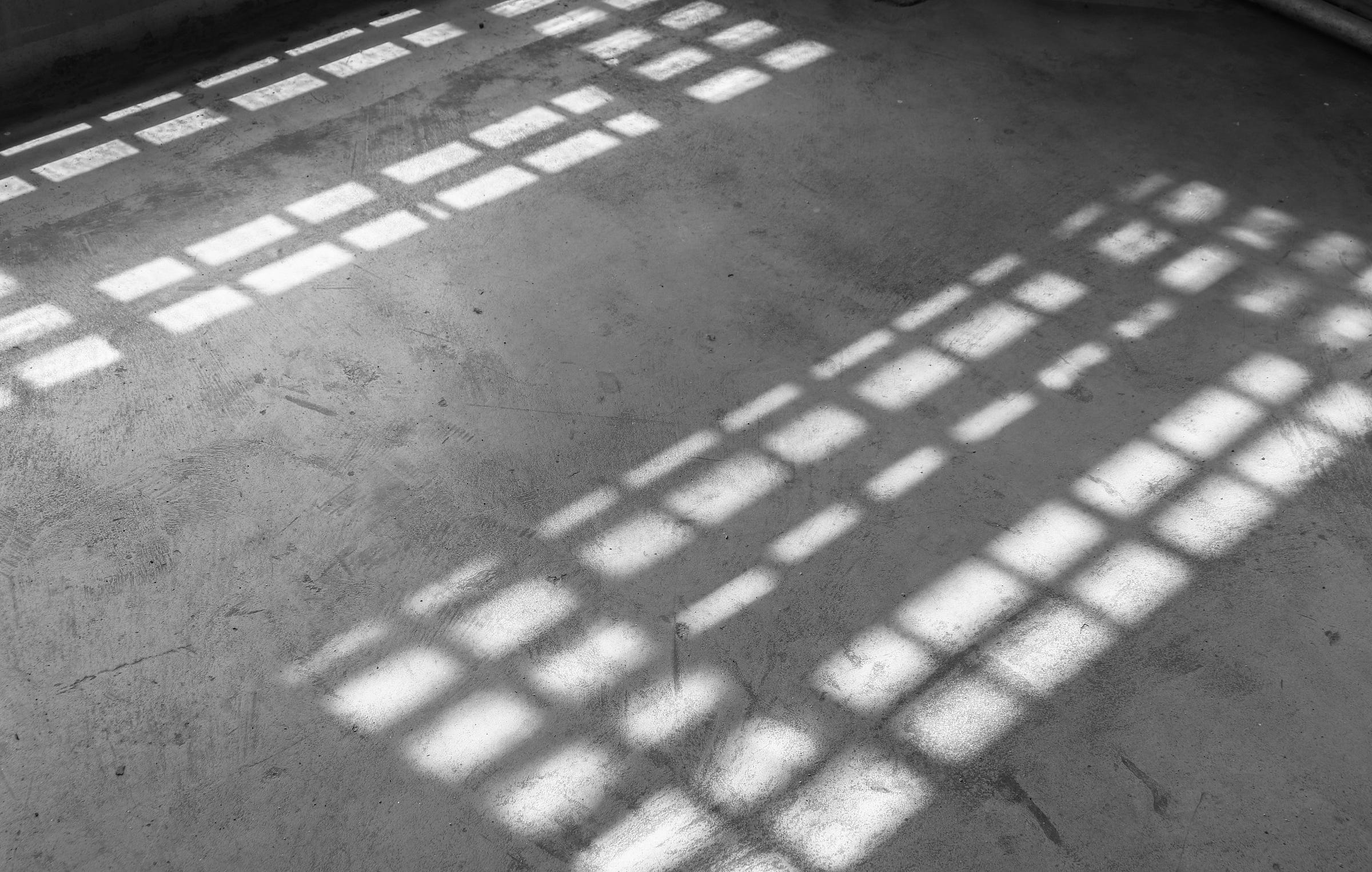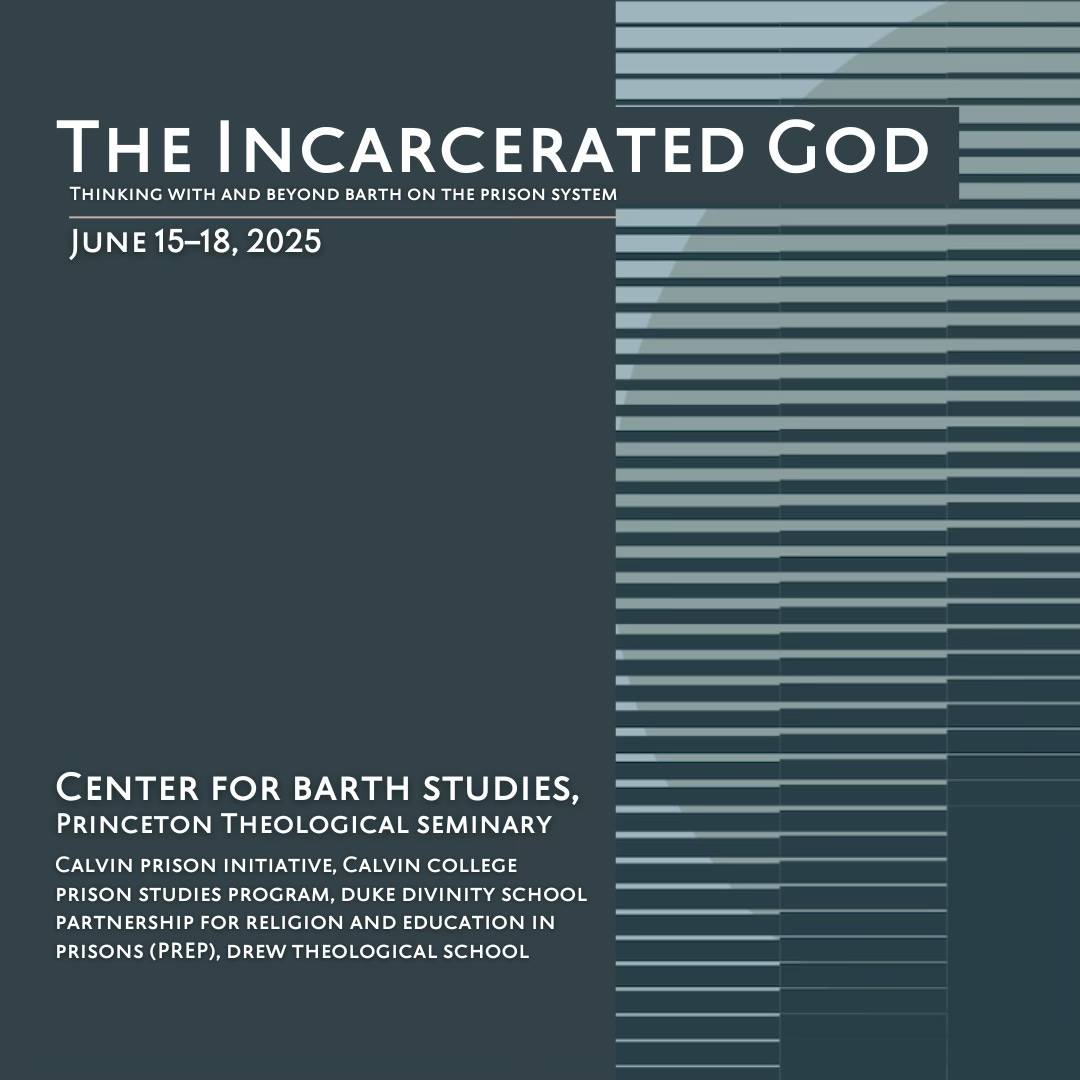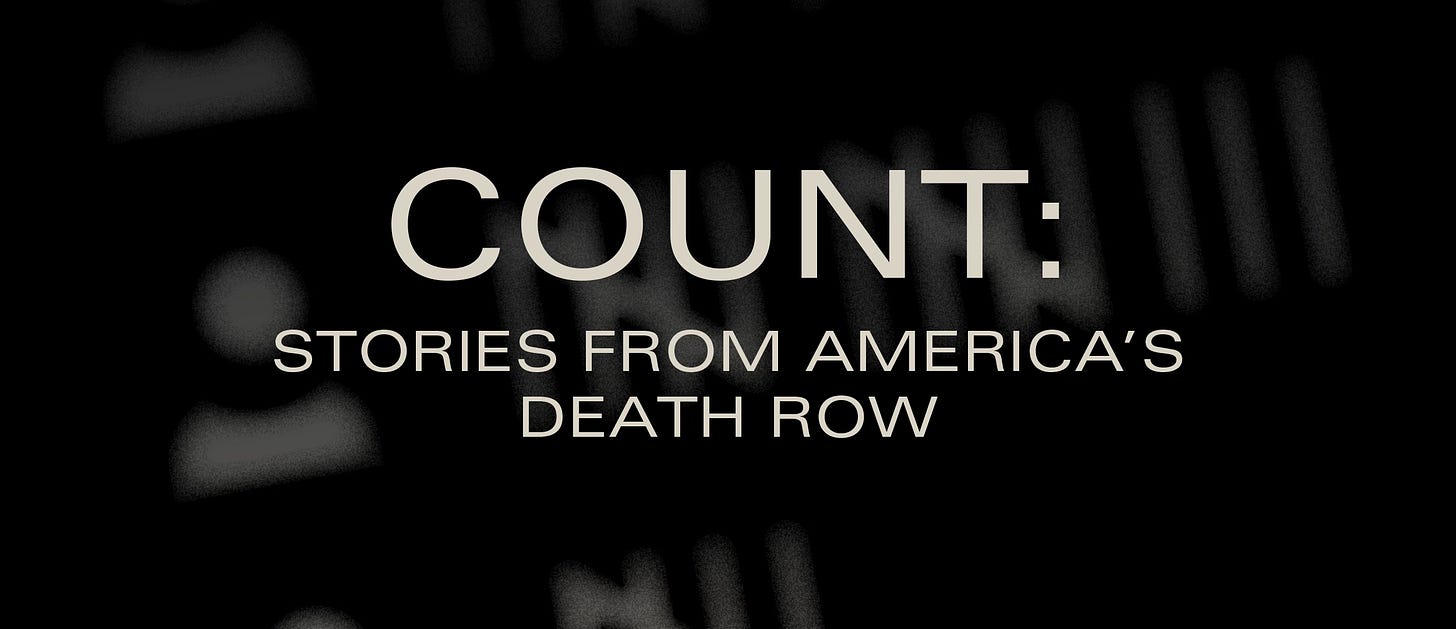
The following is a personal reflection on the topic of incarceration and theology and how both relate to the upcoming Karl Barth Conference on June 15–18 titled “The Incarcerated God: Thinking with and beyond Barth on the Prison System.”
The summer of 2017 will always be burned into my memory. That summer was filled with heartbreak, fear, terror, and anxiety. The same week I was driving down to Charlottesville, Virginia to support a friend in a protest against the alt-right, which would become one of the most formative experiences of my life, a young member of my family—whom I will refer to as Jack—went to prison. Little did I know how much both events would unfold and shape me in the months and years ahead.
Prior to this particular summer, the topic of incarceration was mostly an abstract concept for me. I cared tremendously about the urgent crisis of America’s carceral systems and the harm these systems wreak on individuals and families, especially minority and underserved communities. Yet the whole crisis was simply an issue that I cared about. It was not personal. I never saw the inside of a prison. I never experienced the soul crushing process of advocating for a loved one through the US justice system. The prison industrial complex was a phrase I learned at Princeton Seminary as a budding theology student. But for all my good intentions and convictions, in all honesty, it was simply another cause that I prided myself for caring about.
Then August 2017 happened, and everything fell apart. Jack did something that would indelibly impact the rest of his life and our family. There were the months of unknown as Jack waited in county jail, hoping to get some sort of sentence. There was that one time Jack suddenly disappeared for weeks and we had no idea what happened to him. Jack got in trouble for the smallest infraction and was sent to solitary confinement for what felt like years. When Jack finally got out of solitary, he told me how he thought he was slowly going insane, being alone in a room for 23 hours a day with nothing to do.
Then there were the times, years into the process, when Jack would be transferred to another state prison and my family had no idea where he was. Panic. Waiting. Crushing fear. There was that first time in state prison that I got to hug him after 8 months of not being able to touch him through a glass panel, and I cried like a baby. There was the time I was in the Netherlands for a Barth conference, and my Mom called me as I was walking to get dinner. She told me that the judge told Jack he could be sentenced up to 25 years in prison for the crime he committed. I literally fell to the ground on my knees in the middle of the sidewalk. The terror of that news knocked the wind out of me. And then there was the time Jack’s lawyer told me on the phone, as I walked across the seminary, that it is helpful Jack is white, because if he was black, he would be getting a much different sentence. I can still conjure up the same dialectical feeling of disgust, horror, anger, and guilt-ridden relief I felt in that moment.
Then there is the money. So much money. There were the shifts before and after working at the Barth Center when I drove for Uber to help my family pay for legal fees. There were all the ways that money seemed to be designed to support the terror and agony of this punishment system: money and fees for the prison phone calls, money sent to Jack’s commissary account so he could buy food that was somewhat edible, money to travel two or three or four hours away to a prison to visit him for an hour. And the thousands upon thousands of dollars to get Jack decent legal representation so maybe the next 25 years of his life would not be confined to a cage.
More than the money spent and the labor to make the money to support Jack, the hardest and most painful parts of becoming intimately familiar with the US prison system is the way it tears families apart. Somehow the complexities and all the layers of what led to this situation and the process of trying to get out of it sows deep seeds of distrust, anger, resentment, and frustration in a family. And these seeds bloom into broken relationships and deep harm. As I write this, the poisonous fruit of the seeds sown in 2017 still manifests today.
I have often felt a bit frustrated with the lines drawn in theological studies. On one side, some say there are the more “traditional” theologians who maintain that doctrine is a first-order discourse and for theology to be properly theological, Christian speech about God must be informed and conditioned wholly through Scripture and the revelation of God in Jesus Christ. Then, there are the more “political” theologians who are concerned about questions of human action, ethics, power, and all the supposed implications of doctrine and first-order discourse. The lines drawn between “traditional” and “political” theologians can be stark for many on both sides.
This binary never made sense to me as a Christian. The lines between systematic theology, ethics, and practical theology always seemed like a way to maintain job security more than fidelity to a proper way of understanding how to think and speak about God and creation. For me, any Christology worth its salt grapples with the radicality of God becoming a human being in space and time and forever uniting Godself to creation in all its complexities, horrors, and joys.
I say this as someone who has been taught by the best scholars in the world about Karl Barth’s key theological insights and all the important landmines that we should care about: not compromising the Creator-creature distinction, not making God another object among objects in the world, not making God’s being dependent or contingent in any way upon human history. In short, I have learned all the ways in which Barth warns us how our theologies can be idolatrous.
But one thing that the summer of 2017 taught me is that theology is always political. And the political is always theological. I was introducing the 2017 Barth Graduate Student Colloquium at our opening seminar session when I received a text that Jack went to prison. There was no way that the papers I was going to read during the next three days of the colloquium about God, creation, and humanity could ever be separated, even conceptually, into categories of “the theological” and “the political.” In the life, death, and resurrection of Jesus Christ, the Gospels teach us that the question of the gospel is fundamentally one of power, and when we ask theological questions, we are asking questions about power. And when we are asking questions about power, we are asking questions about God.
Ever since Jack was released from prison a few years ago, I have wanted to explore the subject of incarceration more deeply from a theological perspective. I always knew that Karl Barth preached in the Basel prison for about 10 years of his life. I also knew about his visits to certain prisons in the United States during his visit to America in 1962. But after the prison system became an oppressive reality for my family, I became more aware of the strange number of scholars who are interested in Karl Barth’s theology and who also work as chaplains or are interested in carceral studies. This is how the idea for the upcoming 2025 Karl Barth conference emerged.
I started planning the 2025 Karl Barth conference, titled “The Incarcerated God: Thinking with and beyond Barth on the Prison System” a few years ago. I knew it would take years to plan given the intensely bureaucratic nature of the department of corrections. I also wanted to partner with other schools who had much more experience than I do both thinking about this topic theologically and dedicating their vocation to teaching in prisons.
For the upcoming conference, I have had the honor of partnering with the Calvin Prison Initiative at Calvin University, the Prison Studies Program at Duke Divinity School, and the Partnership for Religion and Education is Prisons (PREP) at Drew Theological School. The conference will be held as a hybrid event in a few weeks at Princeton Theological Seminary. I have organized over 30 Barth conferences and events over the last many years, and I can say this conference is unique. We are bringing together theologians, students, practitioners, chaplains, social workers, activists, pastors, artists, and community members to think theologically about the US prison system.
The reason the other co-organizers and I wanted to name the conference “The Incarcerated God” is in part due to the conviction that the topic of incarceration is intensely theological. The Christian faith confesses that the unjust imprisonment and execution of God in Jesus Christ is for the sake of the world’s liberation. I am eager to learn what it means to confess faith in this particular God who stands in radical solidarity with those the world has deemed unworthy of freedom.
Here are just a few highlights of the upcoming conference:
On Monday afternoon, Todd Cioffi, senior advisor for the Calvin Prison Initiative, will offer a plenary paper. His former student and recent graduate of the CPI, Shawn England, will offer a response paper to Todd. Shawn will then moderate a virtual panel with four men currently enrolled in the CPI at the Handlon prison in Michigan.
On Monday evening, the center will host a screening of the documentary film “Torture in Our Name” created by the National Religious Campaign Against Torture. A talk-back panel will follow the film with members of NRCAT who worked tirelessly to ban solitary confinement in New York and New Jersey.
On Tuesday afternoon, Tessie Castillo and Lyle C. May will offer virtual short reflections at the conference. Tessie is a journalist in North Carolina who worked with Lyle and other men currently on death row in the state to write Crimson Letters: Voices from Death Row.
On Tuesday, the center is partnering with Chesney Snow, a lecturer in the Princeton University theater department, to host two readings of a play called Count: Stories from America’s Death Row (written by Lynden Harris of Hidden Voices) at McCarter Theater. You can purchase tickets for the 3:00 or 7:00 PM show. The 7:00 PM show will feature a discussion panel afterward led by Chesney and me.
I hope you will be able to join us for the upcoming conference! If you cannot travel to Princeton, consider attending the conference virtually. If you have any questions or need a discount code for registration, email us: Barth.center@ptsem.edu
— Kait Dugan, Director





Kait, thank you for this moving personal testimonial that makes statistics take flesh and blood. It is astonishing and gratifying to note that Karl Barth in the 1950s noted Reinhold Niebuhr's inattention to the disgrace of the American penal system, and in his visit to the United States in 1962 Barth raised the matter again in public remarks. Thank you for organizing the June Conference on incarceration, which I look forward to attending "virtually." With gratitude for your leadership, Jim Kay
Thanks Kait for this insightful reflection and for your work towards a very important conference. I do hope it goes as well as it promises.